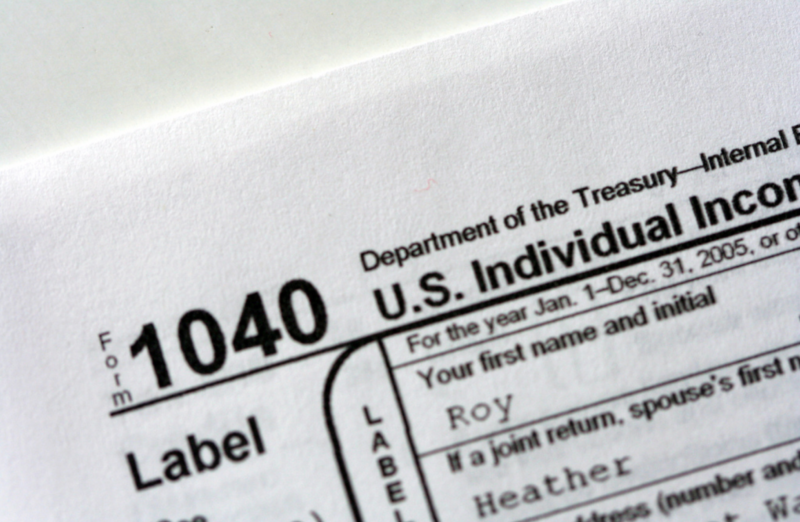By Michael Benson
In 1975, a tax credit known as the Federal Earned Income Tax Credit was established to shield low-wage workers from the regressive effects of rising payroll taxes. Flash forward 42 years and the credit now earns more than 27 million low-income Americans over $66 billion in collective savings. Moreover, the widely-acclaimed government program is now considered one of the government’s most effective tools for combatting poverty. In fact, the federal tax credit has had such a positive far reaching impact on the country’s impoverished, that 26 states have adopted their own supplemental earned income tax credit. Alas, Missouri is not one of those states.

Despite immense support from the Show-Me Institute, the St. Louis Regional Chamber, and other various progressive groups, the state has yet to make any real progress on a supplemental EITC. Senator Caleb Rowden and Representative Mike Kelly both filed bills to establish a Missouri earned income tax credit this year. However, both bills failed to gain traction in the House and Senate respectively. With pre-filling starting in December a bill could and should be re-filed. Why should the state of Missouri rally behind an in-state earned income tax credit? There are ultimately three resounding benefits an earned income tax would provide.
1) Reduced Poverty
A staggering 901,764 individuals or 14.8% of the state’s population are estimated to be living below the poverty line. The show-me state currently ranks as the 22nd worst state in terms of poverty and an estimated 70,596 individuals are currently receiving some form of welfare.
Nationwide, the federal EITC has lifted 9.8 million individuals out of poverty. Supplementary state relief would help raise a portion of the impoverished Missouri population above the poverty threshold. The proposed tax credit equaling an additional 20% of the federal credit would help boost the financial position of low-to-moderate-income working families who could desperately use the tax savings. Considering the average federal EITC for the state of Missouri is $2,377, a state credit would provide an additional annual savings of $475.4. Individuals could use that extra $400-500 to pay off medical expenses, make utility payments, and improve their overall quality of life.
Not to mention, the credit is set up to be a tiered structure based on income under a certain threshold. Earned income tax credits reduce the number of individuals relying on welfare, because the tiered relief system incentivizes individuals to work and earn more for a greater tax break. The state would take in less in tax revenue, but would then be paying out less in welfare. The compromise seems more than fair. Especially considering the current tax system unjustly cripples the poor. Those earning as little as $1,000 a year are subject to taxes with the highest tax bracket kicking in at an annual income of $9,000. Relief is much needed and an in-state EITC would provide that relief.
2) Increased Education
A Missouri earned income tax credit would do more than provide poverty relief. A state credit would also help bolster secondary education enrollment. According to a study conducted by Michigan State University, the federal EITC has increased the probability of high school graduation by 2.1%, and increased college enrollment by 1.4% for children in low-income households.
Naturally, additional tax savings would allow families to invest more in secondary education. Considering an educated workforce only enhances the economy, such an investment in the working class would equate to an investment in a brighter future for Missouri.
3) A Local Economy Boost
Finally, an in-state EITC would benefit individuals beyond the working class. A state credit would boost the local economy, which would in turn benefit every single resident in Missouri. More money in the pockets of Missourians leads to greater spending power, which ultimately creates a ripple effect in the market. In a study conducted by the city of San Antonio, TX, every dollar saved as a result of the earned income tax credit generated $1.58 in local economic activity. An additional $1.58 in spend might not seem like a lot, but if 30,000 people each spent an extra $1.58 a year, there would be enough revenue to support an additional job. Increased spend from the 519,000 individuals in Missouri who would currently qualify for an EITC would have a tremendous impact on the state economy.
Local Support Is Needed
The benefits of a Missouri earned income tax credit are overwhelmingly clear. A state credit would encourage residents to seek and maintain steady employment, while also providing the working class with greater spending power. A stronger working class leads to a stronger Missouri in the long run so that everyone wins in the end.
Nevertheless, wishful thinking is not enough to make a state earned income tax credit a reality. The establishment of an in-state EITC will require support and action on the part of Missouri residents. Overwhelming support for a re-filed EITC bill will undoubtedly inspire action in the house and senate. After all, the will of the people is the basis of authority for the government.
About The Author
Michael Benson is a bankruptcy attorney in St. Louis. As a licensed public accountant, Series 7 investor, and attorney, Michael concentrates his time and effort into helping Missouri individuals improve their financial situations. Michael is a firm believer in the benefits of an in-state EITC.



